Latest News
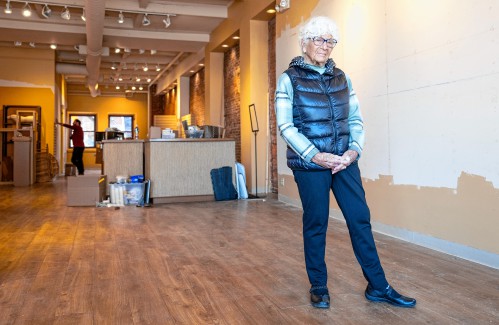
‘Delightful’ Northampton store shopping guide Jane Hertz, 88, seeking next gig
NORTHAMPTON — With the closure of Ten Thousand Villages in Northampton this month, longtime employee and beloved community member Jane Hertz, 88, doesn’t plan to simply give up the community connections and meaningful work she found through the store.

Photo: Spring calling
Most Read
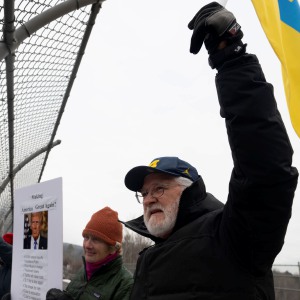 Local ‘Hands Off!’ standouts planned as part of national effort
Local ‘Hands Off!’ standouts planned as part of national effort
 Long-vacant former Faces spot in Northampton gets new tenant
Long-vacant former Faces spot in Northampton gets new tenant
 Here come the sweetness: Four new businesses prepping to open in downtown Northampton
Here come the sweetness: Four new businesses prepping to open in downtown Northampton
 State senators organize Trump defense: Comerford a leader on Response 2025 initiative
State senators organize Trump defense: Comerford a leader on Response 2025 initiative
 Five UMass Amherst students have visas, student status revoked
Five UMass Amherst students have visas, student status revoked
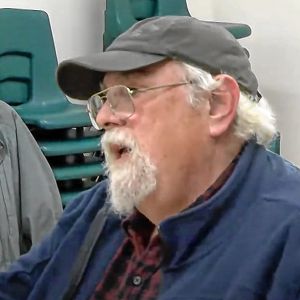 Hatfield Select Board removes elected Housing Authority member
Hatfield Select Board removes elected Housing Authority member
Editors Picks
 A Look Back: April 7, 2025
A Look Back: April 7, 2025
 Amherst can’t decide where it is: Is town center uptown or downtown?
Amherst can’t decide where it is: Is town center uptown or downtown?
 Area briefs: Northampton to celebrate Earth Day with tree plantings; Shutesbury Dems to caucus; Three County Fair food drive; HCC’s free clean energy jobs program
Area briefs: Northampton to celebrate Earth Day with tree plantings; Shutesbury Dems to caucus; Three County Fair food drive; HCC’s free clean energy jobs program
 ‘Art in the Age of Human Impact’: New exhibition at UMass explores complex relationship between humans and nature
‘Art in the Age of Human Impact’: New exhibition at UMass explores complex relationship between humans and nature
Sports
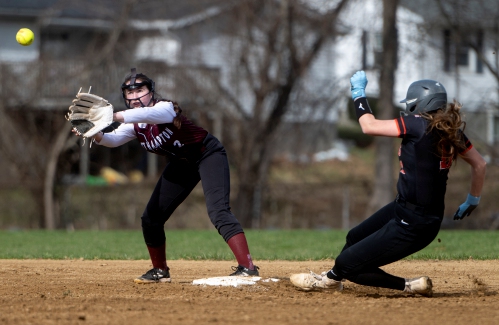
HS Roundup: Ella Schaeffer, South Hadley softball blanks Easthampton 11-0 (PHOTOS)
The South Hadley softball team doubled their win total on the season in its 11-0 victory over Easthampton on Friday in South Hadley.
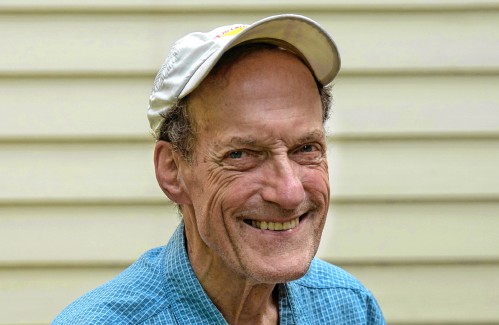 On The Run with John Stifler: Fast walkers
On The Run with John Stifler: Fast walkers
Opinion
 Guest columnist John Saveson: Use your spending power for the planet
Guest columnist John Saveson: Use your spending power for the planet
 Betty Ussach-Schwartz: The greatest grift of all
Betty Ussach-Schwartz: The greatest grift of all
 Jerry Halberstadt: Problems at Northampton Housing Authority seen in many housing programs
Jerry Halberstadt: Problems at Northampton Housing Authority seen in many housing programs
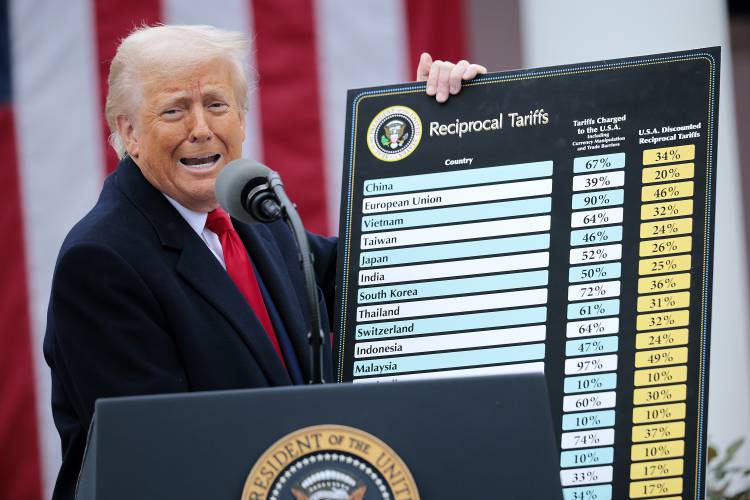 Susan Lantz: Truth-telling
Susan Lantz: Truth-telling

Your Daily Puzzles

An approachable redesign to a classic. Explore our "hints."

A quick daily flip. Finally, someone cracked the code on digital jigsaw puzzles.

Chess but with chaos: Every day is a unique, wacky board.

Word search but as a strategy game. Clearing the board feels really good.

Align the letters in just the right way to spell a word. And then more words.
Business

Long-vacant former Faces spot in Northampton gets new tenant
NORTHAMPTON — After more than five years of sitting vacant, the site of the old Faces store at 175 Main St. will finally have a new occupant, one that’s already established itself as a downtown mainstay of downtown.
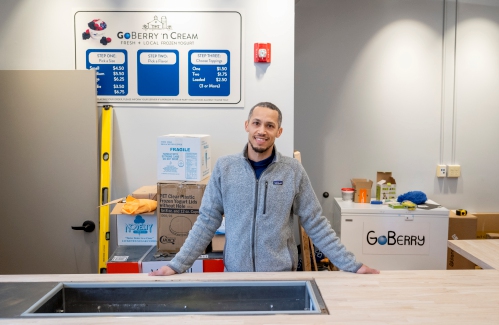 Here come the sweetness: Four new businesses prepping to open in downtown Northampton
Here come the sweetness: Four new businesses prepping to open in downtown Northampton
 Area property deed transfers, April 4
Area property deed transfers, April 4
 Making News in Business, April 4
Making News in Business, April 4
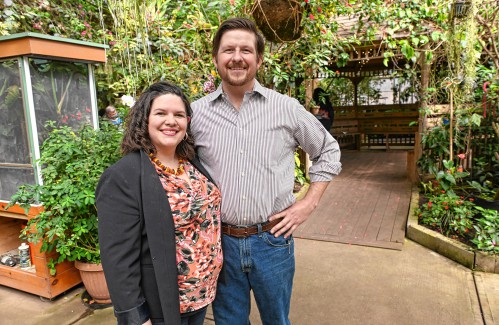 Hopeful buyers emerge for Magic Wings butterfly conservatory in South Deerfield
Hopeful buyers emerge for Magic Wings butterfly conservatory in South Deerfield
Arts & Life
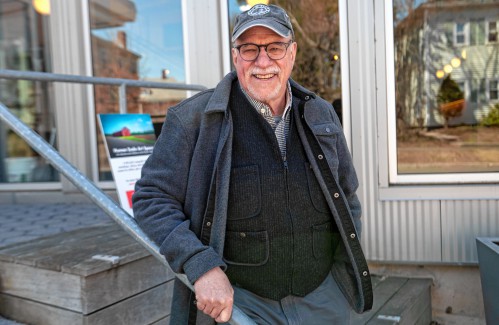
Here to help the community’s artists: Human Scale Art Space aims to advance visual arts in the Pioneer Valley
It’s not uncommon for a small nonprofit not to have a physical space. It is, however, ironic when that nonprofit itself is called Human Scale Art Space.
Obituaries
 Karen Dennett Tripp
Karen Dennett Tripp
Haydenville, MA - Karen Dennett Tripp passed away on Mar 9, 2025, in Leonardtown, MD with her son at her side. She was 85 years old. Born on Sep. 12, 1939, in Provo, UT, to Elwood and Nettie Hardy Dennett, Karen lived a life marked by ... remainder of obit for Karen Dennett Tripp
 Lucy Claire Henchey
Lucy Claire Henchey
Southampton, MA - Lucy Claire Henchey, 92, of Southampton passed away peacefully on April 1, 2025. Lucy was born on January 28, 1933, in Easthampton, MA, the daughter of Alfred Briere and Rose Leduc Briere. Lucy attended Notre Dame Scho... remainder of obit for Lucy Claire Henchey
 Olive Arel
Olive Arel
Sebastian , FL - Olive (Loiselle) Arel, aged 93, passed away peacefully on March 25, 2025, at the VNA Hospice House in Vero Beach, FL. Born on April 20, 1931, in Northampton, MA., she was the daughter of the late Oliver and Annabelle (M... remainder of obit for Olive Arel
 Everett Lennox Reed Jr.
Everett Lennox Reed Jr.
Everett Lennox Reed, Jr. Amherst, MA - Everett Lennox Reed, Jr., 98, passed away on February 24, 2025. Everett is survived by Ken Reed and Ann Marie Lucey (son and daughter-in-law; Northampton MA), Dave and Sakun Reed (son and daughter-i... remainder of obit for Everett Lennox Reed Jr.

 COVID 5 years later: Is Massachusetts prepared for another pandemic?
COVID 5 years later: Is Massachusetts prepared for another pandemic?
 Belchertown residents worry $3.3M override request is too high
Belchertown residents worry $3.3M override request is too high
 Hadley TM to consider zone changes to allow for more variety of senior housing
Hadley TM to consider zone changes to allow for more variety of senior housing
 Southampton resident new interim pastor at North Congregational Church in New Salem
Southampton resident new interim pastor at North Congregational Church in New Salem
 Amherst’s Ryan Leonard scores first career NHL goal in Capitals’ win over Blackhawks
Amherst’s Ryan Leonard scores first career NHL goal in Capitals’ win over Blackhawks
 Advocates explore ways to persuade House to legalize overdose prevention centers
Advocates explore ways to persuade House to legalize overdose prevention centers
 Amherst drawing up plans for area north of UMass campus that could triple the number of apartments currently there
Amherst drawing up plans for area north of UMass campus that could triple the number of apartments currently there
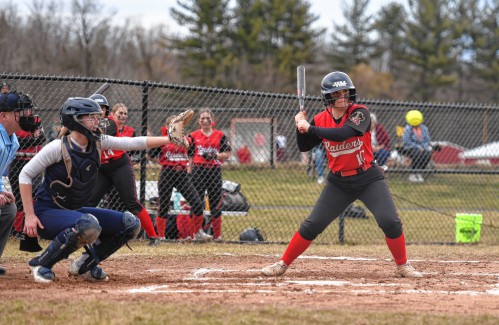 High school softball preview 2025: Hampshire Regional returns plenty of talent
High school softball preview 2025: Hampshire Regional returns plenty of talent 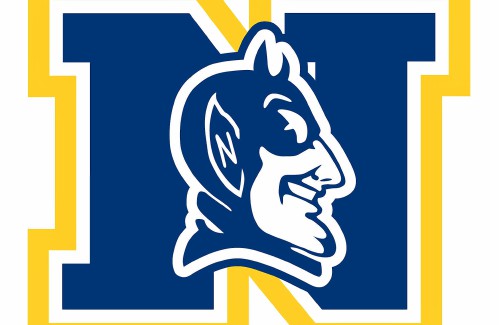 HS Roundup: Keller Mahoney’s six-point day lifts Northampton boys lacrosse over Lenox, 9-4, in season opener
HS Roundup: Keller Mahoney’s six-point day lifts Northampton boys lacrosse over Lenox, 9-4, in season opener UMass basketball: Jayden Ndjigue, Daniel Hankins-Sanford will return to Minutemen next season
UMass basketball: Jayden Ndjigue, Daniel Hankins-Sanford will return to Minutemen next season
 Get Growing with Mickey Rathbun: Paving over historic beauty: A history of the White House Rose Garden that Trump plans to rip up
Get Growing with Mickey Rathbun: Paving over historic beauty: A history of the White House Rose Garden that Trump plans to rip up Valley Bounty: Nothing sweeter than sourcing local: Lemon Bakery in Amherst is a small, seasonal, from-scratch operation
Valley Bounty: Nothing sweeter than sourcing local: Lemon Bakery in Amherst is a small, seasonal, from-scratch operation Arts Briefs: Power of Truths Fest in Florence, dance at Smith, jazz at UMass, and more
Arts Briefs: Power of Truths Fest in Florence, dance at Smith, jazz at UMass, and more Speaking of Nature: Stinky signs of spring: Skunk cabbage is eye candy after months of winter landscape
Speaking of Nature: Stinky signs of spring: Skunk cabbage is eye candy after months of winter landscape
